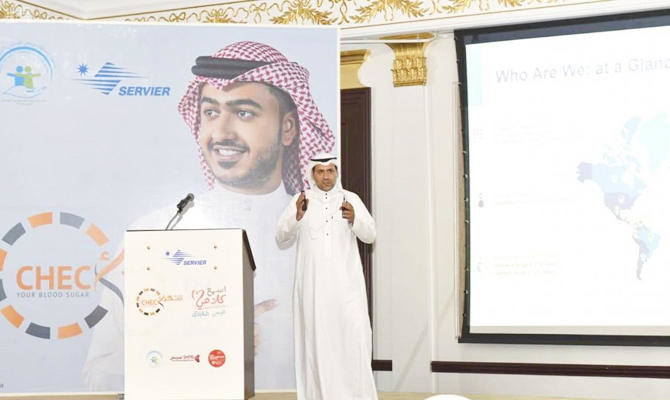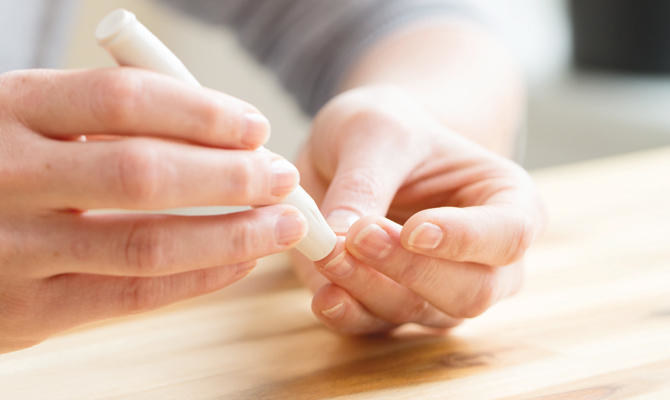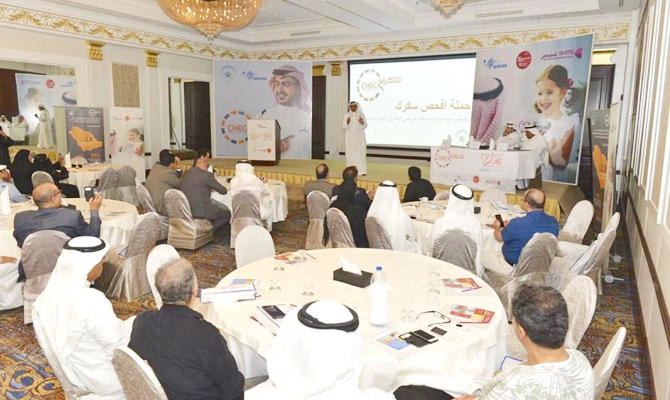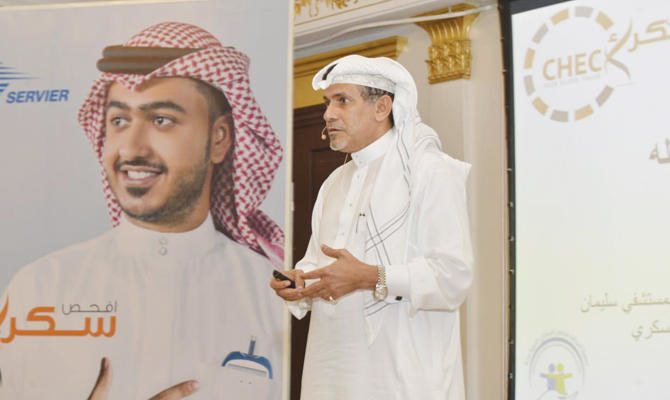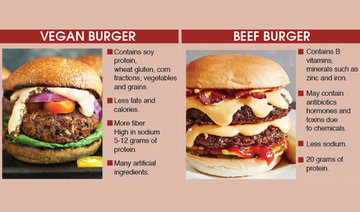JEDDAH: More than 40 percent of Saudi citizens are obese, according to a health official, as two major health campaigns were launched in the Kingdom around diabetes and high blood pressure.
Diabetes and endocrinology consultant and chairman of the Saudi Society for Diabetes, Abdulrahman Al-Sheikh, said the campaigns reflected the principles of the Kingdom's Vision 2030 reform plan which emphasizes the provision of preventive medicine and the fight against chronic diseases.
He said there were 3.8 million diabetics in the Kingdom, representing almost 19 percent of the adult population, and that obesity was a major issue in Saudi society.
“Diabetes drains big sums of any country’s budget allocated for health ministries,” he told Arab News. “More than 40 percent of Saudi citizens are suffering from obesity. When we add overweight cases to this ratio, the number hits 70 percent and these are some of the reasons that have led to the spread of diabetes in Saudi Arabia.”
The high numbers were caused by unhealthy eating habits and low participation in sports, he said, adding: “It is the role of physicians and educators to advise people to practice sports so that we may have fewer diabetes cases in the future. The problem with diabetes is in its dangerous complications such as cardiovascular disease and damage of kidney and many more.”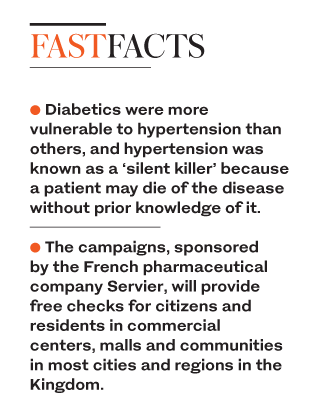
Around 50 percent of dialysis patients were diabetics, he explained, and the same ratio was found in patients with cardiovascular problems. “A similar number is found with eye patients. That is why such complications are draining 40 percent of the health budget in Saudi Arabia.”
Al-Sheik said that 45 percent of deaths were a result of heart diseases.
“A hundred years ago people died of contagious diseases, especially tuberculosis. With lifestyles improving, heart diseases, which are mainly caused by high blood pressure and diabetes, have become one of the main causes of death, in addition to smoking and cholesterol.”
Diabetics were more vulnerable to hypertension than others, he added, and hypertension was known as a “silent killer” because a patient may die of the disease without prior knowledge of it. “So, a person should always check his or her blood pressure and take necessary medications in case one is diagnosed with hypertension.”
Al-Sheikh said prices for hypertension and diabetes medication were high because manufacturers said their research was costly, but that the Saudi Food and Drug Authority (SFDA) got its pricing from more than 30 countries of any drug and discussed what was best for the local market.
“That’s why we have the lowest prices among neighboring countries. I agree that the prices are globally high, but manufacturers claim that their research is costly, too. However, there are some countries where drug prices are cheaper than they are here, but I am hopeful that the SFDA will have another look at this issue.”
The two campaigns aim to alleviate the pain of patients as well as achieve a safe and high quality of life, according to the reform plan's objectives for the health sector.
The campaigns, sponsored by the French pharmaceutical company Servier, will provide free checks for citizens and residents in commercial centers, malls and communities in most cities and regions in the Kingdom.
The first campaign, which has been approved by the SFDA, is organized in cooperation with the Jeddah-based Friends of Diabetic Patients Charitable Association. The other campaign is organized in cooperation with the Saudi Hypertension Management Society (SHMS) and is currently in the final stages of the SFDA approval process.
Senior consultant and head of the Pediatric Kidney Unit at Al-Qatif Central Hospital, Saleh Al-Shurafa, said the hypertension campaign went beyond the free screening process.
“The campaign aims primarily at raising awareness and shedding light on the importance of early detection and lifestyle modification, especially since the prevalence of high blood pressure is 15 percent in adults in Saudi Arabia,” he told Arab News. “Families can play their role in providing members with home care.”
Al-Shurafa, who is also president of SHMS, said that 70 percent of diabetics around the world had high blood pressure and that was the reason for linking the two campaigns.
“That is why the Ministry of Health and SFDA set controlling blood pressure and diabetes as a priority in their programs. The correlation between the two diseases makes it necessary to fight both diseases in parallel, as this will help to avoid many complications, as well as the need to stimulate society to live a healthy and sustainable life.”
He said SHMS started in 2004 with health specialists from around the country. Their goal was to combine efforts in fighting the diseases and training physicians on how to diagnose and deal with hypertension.
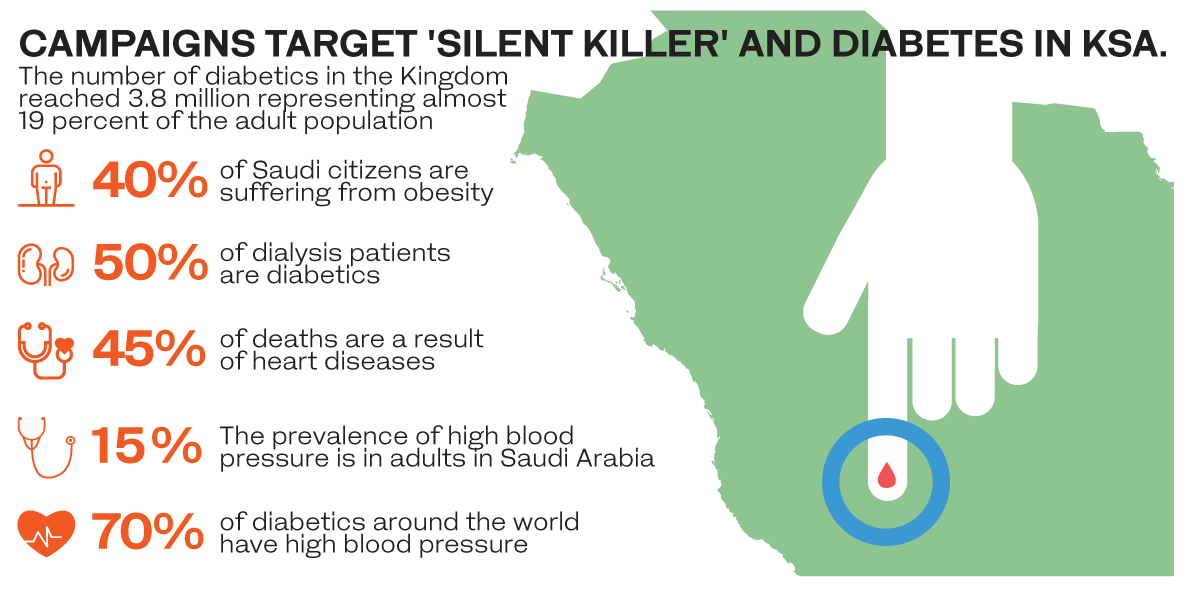
“In 2008, the society expanded its work and was approved internationally. Our main objective is to spread awareness about high blood pressure and its dangers. In addition, we hold courses for both health professionals and members of society.”
SHMS, in coordination with the International Hypertension League and other health organization, will start checking people’s blood pressures from next month in locations such as malls, public places and health centers. “This move aims to spread awareness of dangers that high blood pressure can cause. In this campaign we also urge people to play sports and to follow balanced diets.”


